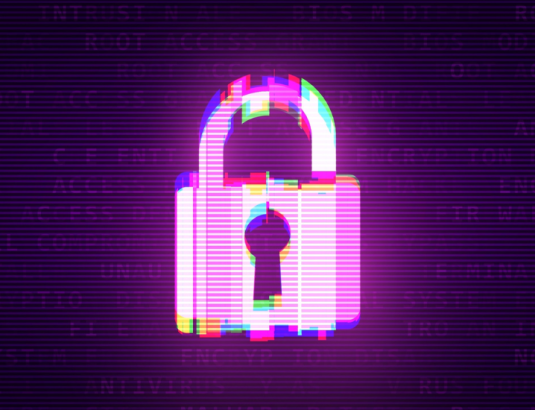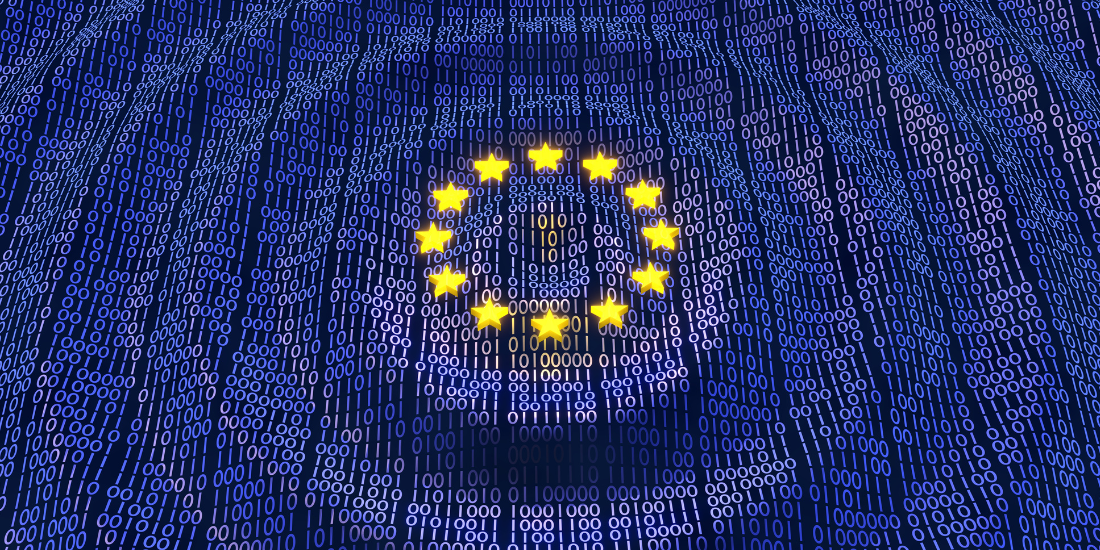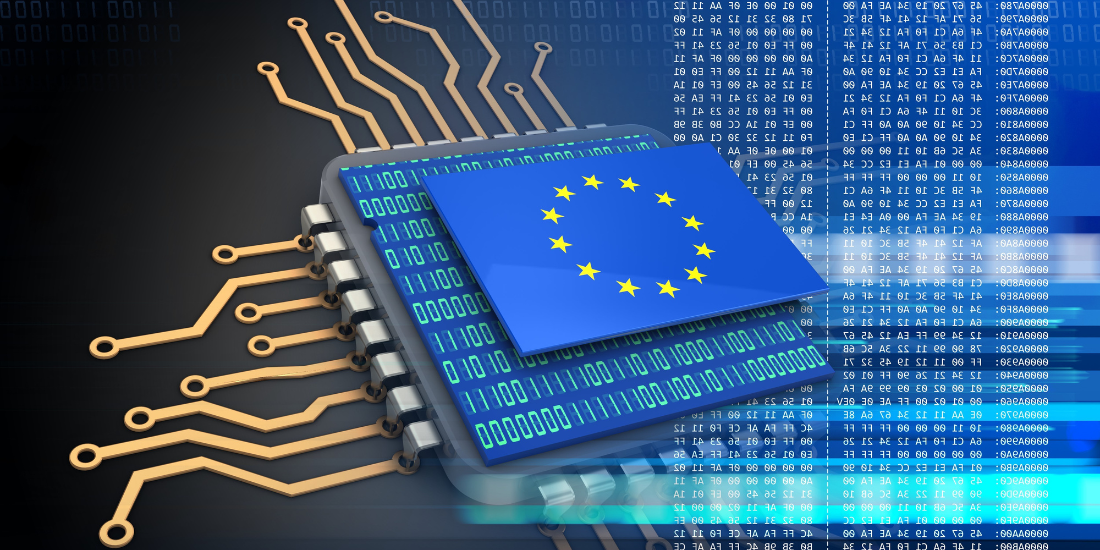Blog Archives



Empowering managers with cyber knowledge
As the digital world continues to grow rapidly, cybersecurity is a priority for businesses to protect their data. Cyber threats can bring significant consequences to an organization such as financial losses, reputation damage etc. Unfortunately, many believe that by incorporating a strong security solution, any risk can be avoided, but the most important factor is to empower the workforce, especially the executives, regarding cybersecurity.
By referring to the workforce, we are not only addressing the IT teams, but also the executives of a company who are responsible for the practices and strategies that a company should follow. With proper training, in case of an emergency, executives will be alert and know what to do and what instructions to give. In collaboration with IT teams and employees, any consequences can be avoided, and a safe digital environment will be created.
The cybersecurity landscape is more vulnerable than ever with new threats emerging and confusing. Let’s look at the most common risks and mistakes that are made by executives:
- Phishing attacks. They are one of the most popular cyber-attacks. Through a malicious email that tricks employees into logging into addresses it contains, many organizations have fallen victim to it, resulting in the spread of sensitive information.
- Weak passwords. Passwords are at the first line of defense and if they are weak, hackers can enter the infrastructure very easily. It is especially important to create complex passwords and use a two-factor authentication app.
- Ransomware. It is a type of malware that enters the system and encrypts the company’s data, demanding a ransom payment for the decryption key. Once it invades, it forbids users from accessing their files.
- Wi-Fi connection. It is particularly important that employees are informed about the risks of using a public Wi-Fi network. In the case of remote working, they should have a reliable VPN installed that will safeguard the company’s sensitive data.
- Reluctance to Report. Every business should create a culture of proactive reporting where employees understand the importance of the situation and do not hesitate to report any cybersecurity incidents.
Overall, cyber threats are constantly increasing, leaving businesses in the dark and not properly prepared. Business executives, who are not properly trained and tend to invest in other areas, are also responsible for this. Regular training and awareness of new threats can create a workforce which is alert and dedicated to protecting the infrastructure from any risk. In this effort, managers must lead the way and guide employees every step of the way, often dedicating time to cyber risk awareness seminars.

Greener Agreements: The Role of E-Signatures in Sustainability
Did you know that businesses consume millions of sheets of paper every year just for…
Read more 1 December, 2025
Cyber Defense in the Age of AI
The year 2025 has undoubtedly been one that broadened our insight into technological advancements, particularly…
Read more 1 December, 2025
Is Quantum Computing a Threat to Network Security?
Undoubtedly, quantum computing stands as one of the most exciting technological leaps of our time,…
Read more 27 October, 2025
The End of an Era: Time to act and make the shift from Windows 10 to 11
Windows 10 officially reached the end of its support lifecycle on October 14, 2025. While…
Read more 27 October, 2025


Ways private cloud brings value to enterprise business
In a constantly evolving digital landscape, businesses are looking for ways in which they can protect their data and flexibly manage their infrastructure.
Over the last few years, private cloud has become increasingly popular due to its capabilities and the greater security it offers in an infrastructure. In a private cloud all resources are isolated and only the organization has access. It is basically chosen by businesses or organizations that need to meet strict compliance standards or deal with confidential documents and sensitive personal data and this is because the infrastructure has full control and is responsible for managing it.
The main types of private cloud are:
- On-premises private cloud is hosted by the infrastructure’s data center and managed by the IT team. The respective company is responsible for its purchase, maintenance and management.
- Virtual private cloud (VPC) includes an isolated private cloud environment within a public cloud, in which actions are allowed to run in a secure setting with shared CSP resources.
- Hosted private cloud is accommodated by a cloud provider, who is responsible for the required updates, installation and maintenance. The contained resources are not shared with other organizations.
- Managed private cloud consists of physical hardware hosted in a service provider’s data center. In this case, CSPs are responsible for purchasing, maintenance and management.
Before addressing the benefits of private cloud in an enterprise, let’s look at the characteristics of other types of cloud models.
In the case of public cloud, the resources provided are available to users after paying a usage or subscription basis. Compared to the private cloud, the public cloud has a multi-tenant setup where multiple users are allowed to share resources.
Regarding the hybrid cloud, it combines public and private clouds to create a flexible and cost-effective solution. In this case, the hybrid cloud involves a connection from an on-premises data center to a public cloud where additional services and assets are included.
Benefits of private cloud
Private cloud offers several advantages to a business:
- Offers greater control and visibility to the organization
- Businesses and IT teams have the ability to customize their hardware and software
- Private cloud is designed with significant levels of security to secure data from unauthorized users
- Ability to adapt to meet compliance requirements and regulatory standards
- In case private cloud is offered by third party providers, the cost is significantly reduced compared to public cloud.
- Optimizes performance by isolating workloads on dedicated servers

Greener Agreements: The Role of E-Signatures in Sustainability
Did you know that businesses consume millions of sheets of paper every year just for…
Read more 1 December, 2025
Cyber Defense in the Age of AI
The year 2025 has undoubtedly been one that broadened our insight into technological advancements, particularly…
Read more 1 December, 2025
Is Quantum Computing a Threat to Network Security?
Undoubtedly, quantum computing stands as one of the most exciting technological leaps of our time,…
Read more 27 October, 2025
The End of an Era: Time to act and make the shift from Windows 10 to 11
Windows 10 officially reached the end of its support lifecycle on October 14, 2025. While…
Read more 27 October, 2025


EU NIS 2-Priority on cybersecurity
The progress of digitalization is putting cybersecurity at the center of the EU’s actions, resulting in the adoption of a legislative framework that aims to emphasize proactive security monitoring and the creation of a more resilient digital infrastructure capable of dealing with the threats of the modern digital world.
The European Commission has brought forward the NIS 2 Directive, which provides legal measures to strengthen the overall level of cybersecurity within the EU and was adopted in 2023. This Directive introduces comprehensive cyber measures for Member States and significantly enhances the functioning of the market through strong security protocols and incident response capabilities.
While NIS 1 was primarily addressed to seven sectors, specifically energy, transport, banking services, financial market infrastructure, drinking water, healthcare and digital infrastructure, NIS 2 broadens its scope and addresses new sectors based on the degree of digitization and the role they play in the economy and society.
It is important to know that the NIS 2 Directive applies to both public and private entities, which are divided into “essential” and “important”, depending on the sector in which they are involved. Even public administration bodies are subject to certain conditions.
Each Member State must designate competent bodies to monitor implementation of the Directive and carry out inspections for compliance with it. In cases of non-compliance, they must impose fines that can reach up to 10,000,000€ or 10% of the total worldwide annual turnover of the business they own.
NIS Directive 2- A comprehensive set of cybersecurity measures
NIS 2 contains a comprehensive set of cybersecurity measures that companies and institutions must implement:
- Appropriate technical and operational measures are taken to manage the risks of systems and information.
- Report incidents, to the appropriate authorities or Computer Security Incident Response Teams (CSIRTs), that affect the security of network systems.
- Smooth cooperation with the competent authorities or CSIRTs.
- In case of an incident, information to the public is required. Information to the public is required even in the case of preventive measures.
- Compliance with codes of conduct or standards of practice established at EU or national level is required.
Cybersecurity is now at the center of the EU’s attention, especially after the adoption of NIS 2, where the benefits will be obvious for operators. Dealing with cyber-attacks preserves the reputation of businesses, consumer confidence and the protection of fundamental rights such as the protection of personal data.

Greener Agreements: The Role of E-Signatures in Sustainability
Did you know that businesses consume millions of sheets of paper every year just for…
Read more 1 December, 2025
Cyber Defense in the Age of AI
The year 2025 has undoubtedly been one that broadened our insight into technological advancements, particularly…
Read more 1 December, 2025
Is Quantum Computing a Threat to Network Security?
Undoubtedly, quantum computing stands as one of the most exciting technological leaps of our time,…
Read more 27 October, 2025
The End of an Era: Time to act and make the shift from Windows 10 to 11
Windows 10 officially reached the end of its support lifecycle on October 14, 2025. While…
Read more 27 October, 2025


Digitalization: One of Europe’s main priorities
Digital investment continues to be at the center of Europe’s efforts to prepare the EU for a resilient and better future. The new budget amounts to €189.3 billion. for 2024, with a significant amount allocated to technology and digitalization. This funding is aimed at modernizing and empowering Member States for the digital transition, strengthening Europe’s role around the world. The focus is on empowering businesses in a sustainable and resilient digital environment.
Substantial investments are directed towards digital infrastructure, skills, and innovation through programs. One of the most important EU’s funding programs is «Digital Europe Programme», which focuses on introducing digital technology to businesses, public administrations and citizens.
Digital Europe Programme
Digital technology now plays a crucial role in the business environment and in the private lives of Member States. Europe’s main concern is not to depend on systems and solutions from other countries but to support projects in essential areas such as artificial intelligence, cybersecurity, advanced digital skills, promoting the use of digital technologies and high-performance computing. In this way, it will be able to support SMEs and public administrations in their digital transformation. In order to achieve a secure digital transformation, it is considered necessary to promote human rights and create a secure digital environment where citizens can be empowered and protected.
The budget allocated for this program amounts to €1.3 billion to shape Europe’s digital future and €348 million for the InvestEu program aimed at research, innovation and digital transition. The Digital Europe program does not tend to address individual challenges but at the same time supports other digitalization-related programs such as «Horizon Europe». More specifically, Horizon Europe is a funding program designed to tackle climate change, support sustainable development objectives and boost research and innovation.
The main targets of the program are:
- Increasing capacity and excellence in technology
- Increasing interest of European Union citizens in seeking careers in the digital sector
- Cooperation between research centers, businesses and higher education institutions
Digital transformation can affect all areas of modern life. The change for Europe has already begun, and rapidly, as it can be an important part of the economic and green recovery and the strategic autonomy of the European Union. The European Digital Strategy aims to make Europe fit for the digital age by boosting digital skills, infrastructure and innovation, making Europe independent of other countries’ systems and solutions.

Greener Agreements: The Role of E-Signatures in Sustainability
Did you know that businesses consume millions of sheets of paper every year just for…
Read more 1 December, 2025
Cyber Defense in the Age of AI
The year 2025 has undoubtedly been one that broadened our insight into technological advancements, particularly…
Read more 1 December, 2025
Is Quantum Computing a Threat to Network Security?
Undoubtedly, quantum computing stands as one of the most exciting technological leaps of our time,…
Read more 27 October, 2025
The End of an Era: Time to act and make the shift from Windows 10 to 11
Windows 10 officially reached the end of its support lifecycle on October 14, 2025. While…
Read more 27 October, 2025


Europe’s sustainable and technological development
In recent years, we have seen the European Union investing in technological development and sustainability, shaping a future where innovation is compatible with environmental responsibility. The EU budget plays an important role in achieving this and in exploiting technology, providing significant resources for the greater good.
The Commission set the 2024 budget at €189.39 billion in commitments and €142.63 billion in total payments. The draft budget directs funds where they can help address the challenges and needs of EU Member States. A certain amount will also be allocated to the Digital Europe program and to shaping the Union’s digital future, as well as to environmental actions aimed at mitigating and adapting to climate change. The digital sector is vital to ensuring a sustainable future and accelerating economic recovery by boosting investment in various sectors.
On the occasion of Europe’s Digital Program, Cisco has created 10 key technology policies that can make a significant contribution to sustainable growth, leveraging artificial intelligence and connectivity.
Let’s take a look at Cisco’s proposals for empowering Europe’s future.
- AI compliance regulations. It is considered particularly important to adopt regulations that are globally compatible and promote cooperation on risk mitigation through forums.
- Enhancing artificial intelligence skills. It is considered necessary to develop digital skills and to ensure that citizens of the Member States make proper use of artificial intelligence.
- Removal-recycling of old digital devices. The modernization of digital devices can help to enhance the security of the infrastructure and avoid risks.
- Establish security regulations. Establishing strict safety rules can mitigate economic and social risks for individuals and companies.
- Agreement between the EU and the US on government data. With the agreement between these two, the rights and data of citizens would be protected and would reduce tensions in Europe regarding the cloud.
- Strengthening networks through strategic connectivity. A connectivity strategy can play an important role in the development of networks and cross-border service provision through investment.
- Provision of long-range Wi-Fi. Allocating the upper 6 GHz band to Wi-Fi would meet the growing demand for wireless devices and Europe would be one step closer to achieving gigabit connectivity.
- Facilitate the eco-friendly transition through digital innovations. EU policies on industry, digital technology, energy, and the environment need to be coordinated to promote a robust green single market.
- Promote free trade and eco-friendly exchange of goods and services. This will remove barriers to the adoption of sustainable technology and the EU will work with trading partners to promote a circular digital sector.
- Partnerships for economic innovation. Working with like-minded countries and the private sector to implement global standards will unleash the potential of advanced technologies and build confidence and resilience.

Greener Agreements: The Role of E-Signatures in Sustainability
Did you know that businesses consume millions of sheets of paper every year just for…
Read more 1 December, 2025
Cyber Defense in the Age of AI
The year 2025 has undoubtedly been one that broadened our insight into technological advancements, particularly…
Read more 1 December, 2025
Is Quantum Computing a Threat to Network Security?
Undoubtedly, quantum computing stands as one of the most exciting technological leaps of our time,…
Read more 27 October, 2025
Microsoft Copilot Agent: Boosting SMB Productivity with AI
In today’s dynamic business environment, small and medium-sized businesses (SMBs) require tools that seamlessly blend…
Read more 6 October, 2025


Why Every Company Needs a Business Sustainability Plan
Increasing risks derived from climate change, social issues, such as inclusion and diversity, human rights and data privacy, or compliance, have made sustainability an integral part of a business resilience strategy. All organizations, without exception, must adopt a plan to manage risks and opportunities related to sustainability issue, aiming to contribute to the long-term prosperity of the organization itself and the society.
Economic Resilience
A well-designed sustainability program has the ability to enhance the financial resilience of organizations, as it will reduce their operating costs, their exposure to risk and also create new revenue streams and market opportunities. Some significant initiatives they can take are systems and automations, data analytics, governance and risk management systems.
Environmental Responsibility
Environmental challenges should awaken businesses to adopt environmentally friendly practices with the main objective of reducing their environmental footprint and managing resources responsibly. They also position themselves as responsible corporate citizens in their efforts, thereby enhancing their brand (climate adaptation & climate mitigation actions).
Social Impact
Sustainability is not just for individuals but for the whole society, as only in this way the difference can be seen. The practices adopted by a sustainable business affect the employees, customers and the community. A sustainable business plan can make a significant contribution to working conditions, equity and customer relations, enhancing the long-term prosperity of the business.
Ethical Considerations
A well-designed sustainability plan helps companies to set ethical standards and guidelines for their operations e.g. fair labor practices, transparent supply chains or even cyber security.
Competitiveness
Most consumers are now aware of the urgency of the situation and are looking for environmentally responsible solutions and brands. With the help of a sustainability plan, a business can differentiate itself in the market through innovation and attract more customers who prioritize sustainability in their purchasing decisions.
Risk Mitigation
Businesses are given the opportunity to mitigate risk, as through the plan a potential risk can be identified and addressed immediately, ensuring that a company is better prepared to face unexpected challenges.
Adopting a sustainable plan is a one-way street for businesses, not only because of the potential impact it can have but because the planet is everyone’s concern, and we need to contribute to ensuring a healthy planet.

Greener Agreements: The Role of E-Signatures in Sustainability
Did you know that businesses consume millions of sheets of paper every year just for…
Read more 1 December, 2025
Cyber Defense in the Age of AI
The year 2025 has undoubtedly been one that broadened our insight into technological advancements, particularly…
Read more 1 December, 2025
Is Quantum Computing a Threat to Network Security?
Undoubtedly, quantum computing stands as one of the most exciting technological leaps of our time,…
Read more 27 October, 2025
The End of an Era: Time to act and make the shift from Windows 10 to 11
Windows 10 officially reached the end of its support lifecycle on October 14, 2025. While…
Read more 27 October, 2025